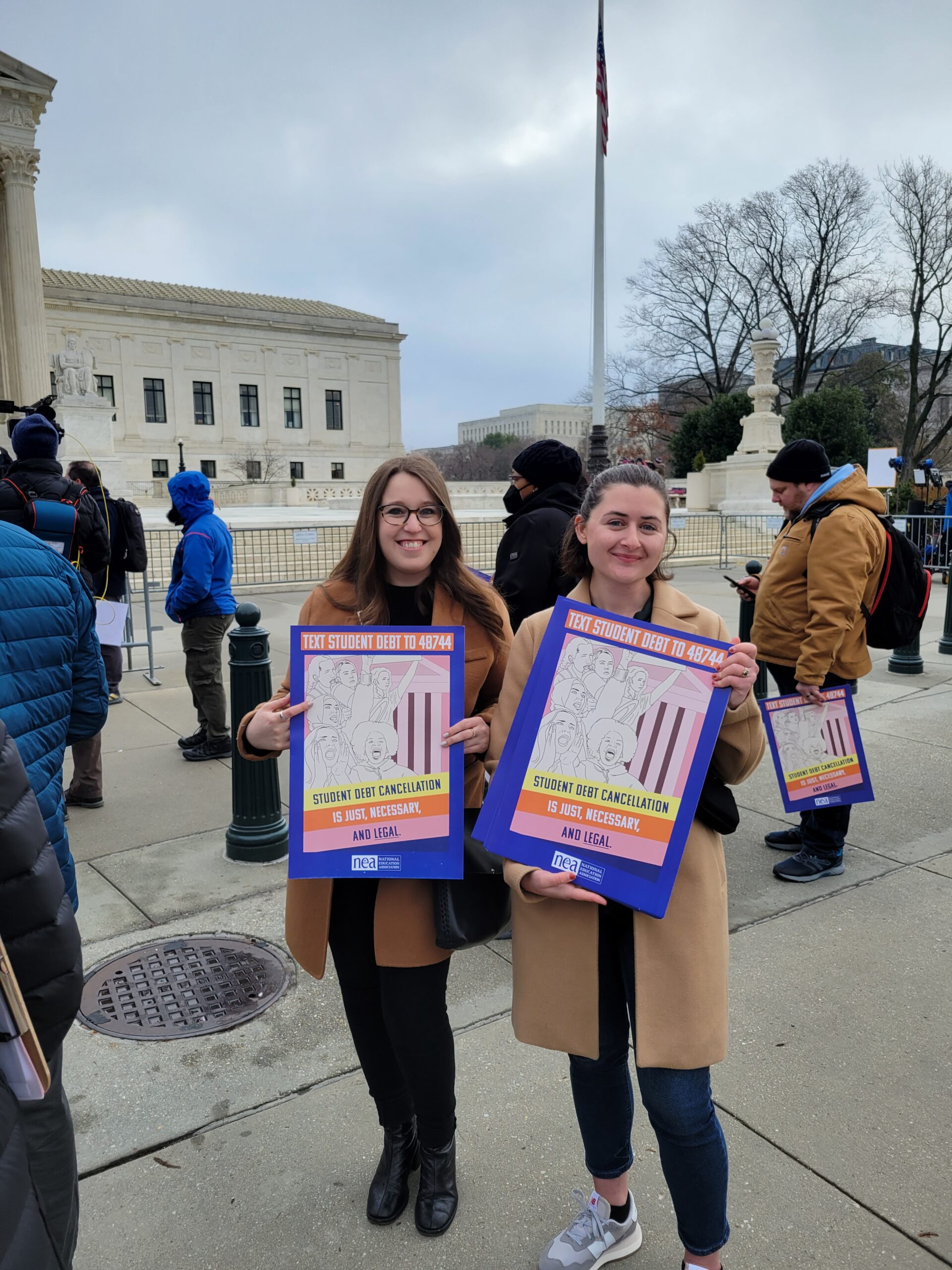President Biden’s up to $20,000 in student loan forgiveness is on hold as the Supreme Court deliberates.
As a result, the federal forbearance pause has been extended until June 30. If litigation has not been resolved by then, payments will begin 60 days after that.
If you have private student loans or consolidate or refinance with a private lender, you are not eligible for federal student loan debt relief, like the federal forbearance pause and loan forgiveness.
Beware of scams. If you have federal loans, you do not pay to receive federal loan forgiveness or discharge. The loan forgiveness application is only available on StudentAid.gov and is currently not accepting applications due to the Supreme Court case.
Borrowers should go to the FSA website to make sure their accounts have updated contact information and find out who their loan service provider is, as this may have changed since the beginning of the pandemic.
Deadlines
Borrowers that have commercially-held Federal Family Education Loans (FFEL), Perkins, and HEAL loans are eligible for the one-time payment adjustment if they consolidate their loans with Federal Student Aid by May 1, 2023.
Default borrowers have until December 31, 2023 to use the Fresh Start Program to become in good standing and take advantage of the loan forgiveness and the one-time payment adjustment.
Bankruptcy and student loans
There is a general myth that student loans cannot be discharged in bankruptcy. That is not true. Much depends on whether you have federal or private student loans.
Federal student loans are held to a strict “undue financial hardship” standard that requires a separate review and hearing to be discharged in bankruptcy. There have been recent changes to bankruptcy laws for debtors with federal student loans who seek discharge under the “undue hardship” standard.
However, certain types of private student loans can be discharged like other consumer debts with a regular bankruptcy order and do not require a separate hearing, if the loans are considered “non-qualified higher education expenses.”
Private loans that are “non-qualified education expenses” that can be discharged in bankruptcy include:
- Loans for attendance at non-accredited and foreign schools ineligible for U.S. Federal student aid
- Loans given to borrowers who attended less than half-time
- Loans given over the cost of attendance, disbursed directly to the borrower, instead of the school
- Loans to cover fees, costs, studying, and living expenses for the bar exam or other professional exams
- Loans associated with the costs, fees, and living expenses for a medical or dental residency
- Other loans made for non-qualified higher education expenses
It is illegal for private loan servicers to collect on debts discharged in bankruptcy and the Consumer Financial Protection Bureau (CFPB) has ordered them to return those funds to affected borrowers.
Resources
There are several organizations and advocate groups for borrowers. Below are just a few. Many work with other borrower organizations, so if they can’t assist you then can most likely point you in the right direction.
| Resources | Areas |
| Student Debt Crisis Center (SDCC) | Webinars on loan forgiveness applications, including ParentPlus and PSLF. Advocacy for borrowers. |
| Student Borrower Protection Center (SBPC) | Webinars on loan forgiveness applications, including ParentPlus and PSLF. Provides legal advocacy for borrowers’ rights. |
| The Debt Collective | A debtors’ union fighting to cancel debts and defend millions of households. |
| American Federation of Teachers (AFT) | Advocacy for educators on Teacher Loan Forgiveness (TLF) and PSLF. |
| Project on Predatory Student Lending (PPSL) | Representing students against the predatory for-profit college industry, Sweet v. Cardona. |
| National Consumer Law Center (NCLC) | Uses advocacy, education, and litigation to fight for economic justice. |
| Consumer Financial Protection Bureau (CFPB) | Tools and resources for borrowers to file complaints against institutions re: student loan debt. |
| Fresh Start Program – FSA Default Group | Assistance for borrowers in default on student loans. |
| Ombudsman Group – Dept of Education | Assist borrowers in resolving student loan issues, as a last resort after trying to resolve with loan servicer or college unsuccessfully. |
| NAACP | Advocacy for borrowers. |
| DOJ Guidance on Bankruptcy | Borrowers filing for bankruptcy have new guidelines. |
| Closed School Loan Discharge | Federal Student Aid (FSA) |
| Borrower Loan Defense Discharge | Apply on the FSA website |
